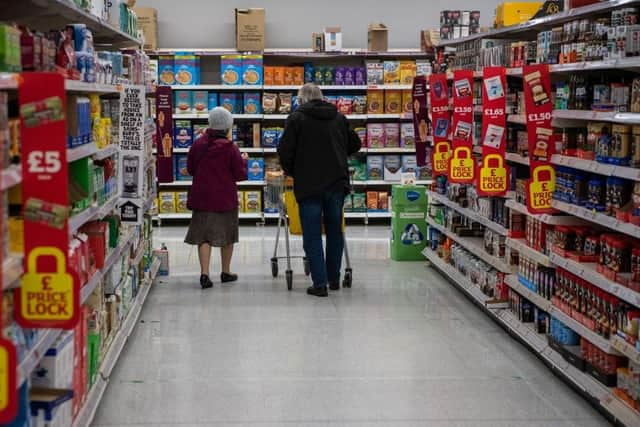Big supermarkets have enough padding to absorb extra costs for us all - Stephen Jardine
When push came to shove, it sailed through the House of Commons and is now set to boost Treasury finances by £5 billion, helping fund the £400 handout for every home in the land.
Windfall taxes have not been a common feature of public finances in this country to date but that could be changing. Chancellor Rishi Sunak is said to be looking at the eyewatering profits of electricity generators for similar treatment and this week another target floated into view.
Advertisement
Hide AdAdvertisement
Hide AdLast year the big supermarkets banked over a billion pounds in profits. Well done them. Compared to other countries, we have a brilliant range of supermarkets and they are highly skilled at what they do.
In fact instead of letting Michelle Mone and her husband get their mits on PPE contracts during the pandemic, we should have given the procurement task to supermarket giants who seem to get everything for a fraction of the market cost.
If our supermarkets are successful because they are well run then they and their shareholders deserve the rewards….as long as they play the game.
This week, Sainsbury’s revealed that it’s Chief Executive Simon Roberts saw his pay reach £3.8 million in the last financial year. That represents a 31% increase on the previous year compared to the 5.3% increase for staff, well below the 9% inflation fuelling the cost of living crisis.


In response to pressure from investors, Sainsbury’s have also moved staff onto the real living wage of £9.90 an hour but have declined to pressurise contractors who provide cleaning or security services to do the same. That’s not playing the game.
Supermarkets did very well out of lockdown. Sales soared and while the rest of stayed at home, their staff were on the front line every day, keeping the nation fed. The big retailers warn profits are now under pressure due to increased operating costs and staff shortages but there is more than enough padding to protect them from the worst of the current crisis.
They also have the advantage of the Government backing down on the multi-buy promotions that were due to be banned under legislation designed to combat the obesity epidemic.
In other words, it is largely business as usual for Britain’s big food retailers while everyone else works out how to weather the current crisis. That’s not fair.
Advertisement
Hide AdAdvertisement
Hide AdIf the supermarkets are smart, they will ensure the living wage is enshrined in every aspect of their operations and that zero hours contracts are eliminated.
They also need to look at the fast rising cost of staple items such as bread, rice and pasta and work with suppliers to minimise the knock on effect for shoppers. If that means absorbing some of the cost right now, that is fair.
The alternative is more bumper profits and enormous pay rises for executives With that comes the very real risk a Chancellor reaches to the shelf for a supermarket windfall tax very soon.
Comments
Want to join the conversation? Please or to comment on this article.
